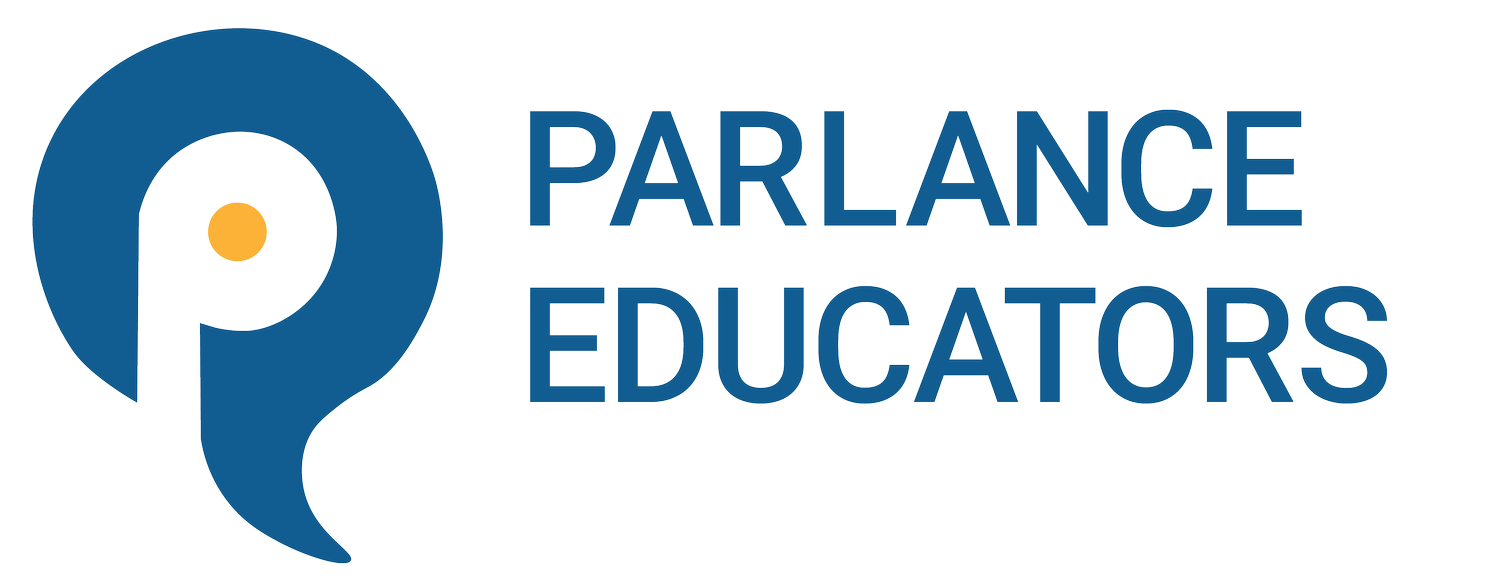
About Us
Parlance Educators
Education that speaks to you.
Parlance Educators is a boutique education firm equipped to help students from middle school to graduate school. More than just a reservoir of content knowledge, Parlance is all about relating that information to you, the student. One-on-one discussion, not just instruction, grants students working with Parlance the opportunity to build a rapport, report back what is understandable and accessible in real time, and benefit from immediate adaptation and alternative paths to comprehension and success.
Fueling this endeavor is unbridled enthusiasm. Parlance is built on a deep interest in how we learn, how we teach, and how we can actually enjoy the educational journey together. Success is measured by both how a student improves in performance and in perception of the confusing course, troublesome test, or panic-inducing project. You certainly don’t have to love every subject, exam, or presentation or report. Parlance is here to help you know what to do even when you don’t.
Andrew DuFresne, Ph.D.
Lead Educator
Dr. DuFresne is a scientist with a passion for teaching and sharing the joy and wonder of learning about how the world works and how we work. He’s enjoyed tutoring and guiding students to their academic goals since his own days in high school. His efforts and achievements allowed him to enter the research lab early in college and prepared him to assist his course professors with generating materials, creating exams, and leading help sessions for more than half of his college career as a biochemistry major at Worcester Polytechnic Institute.
His doctoral research at The Johns Hopkins University School of Medicine focused on molecular biology and virology and used drug intervention and radiation treatments to combat viral-associated blood-based cancers in human cells. Despite a lifelong avidity for cancer research and contributing to the pursuit of novel treatments, though, his favorite roles in science are to share it with others, help educate the public, and inform policy.
His approach to science education and communication is to critically engage his audiences with narrative, relatable subjects and themes, and societal context and impact - a topic he first explored as an undergraduate research student at NASA’s Johnson Space Center studying the history of Mars exploration. Rather than perpetuate the various disciplinary silos in education, he avoids an isolated focus on STEM (Science, Technology, Engineering, and Math), instead utilizing a cross-disciplinary, integrated style he has dubbed MESH (Math, Engineering, Science, and Humanities), which highlights connections between science, history, economics, politics, and philosophy.
He incorporates - and teaches - principles of clear and strategic communication and the fundamentals of teaching itself. In the classroom, his students have been scientists at any point in their journeys from undergraduates to later in their careers when they are transitioning into teaching roles. He consults on academic program development and evaluation, and he has contributed to policy discussions concerning a variety of issues, including climate change mitigation measures, genomic data privacy and security, and how emerging technologies transform society. Partners in this science education, communication, and policy work have included the National Institutes of Health and Arizona State University’s Consortium for Science, Policy, and Outcomes.
He founded Parlance Educators to concentrate his lessons learned and lessons taught into his work tutoring students. He has accrued thousands of hours of one-on-one teaching and mentoring. And he is excited by all he will learn and by all the students he hopes to help in his work that lies ahead.


